Copenhagen-centered Pure Material Studio and designer Zuzanna Skurka have designed an set up at Milan style week from gentle bio textiles produced from surplus bricks.
Known as Brick Textiles, the venture is on exhibit at Alcova – a travelling exhibition platform for unbiased style and design that is held at a various disused web site in Milan every calendar year.
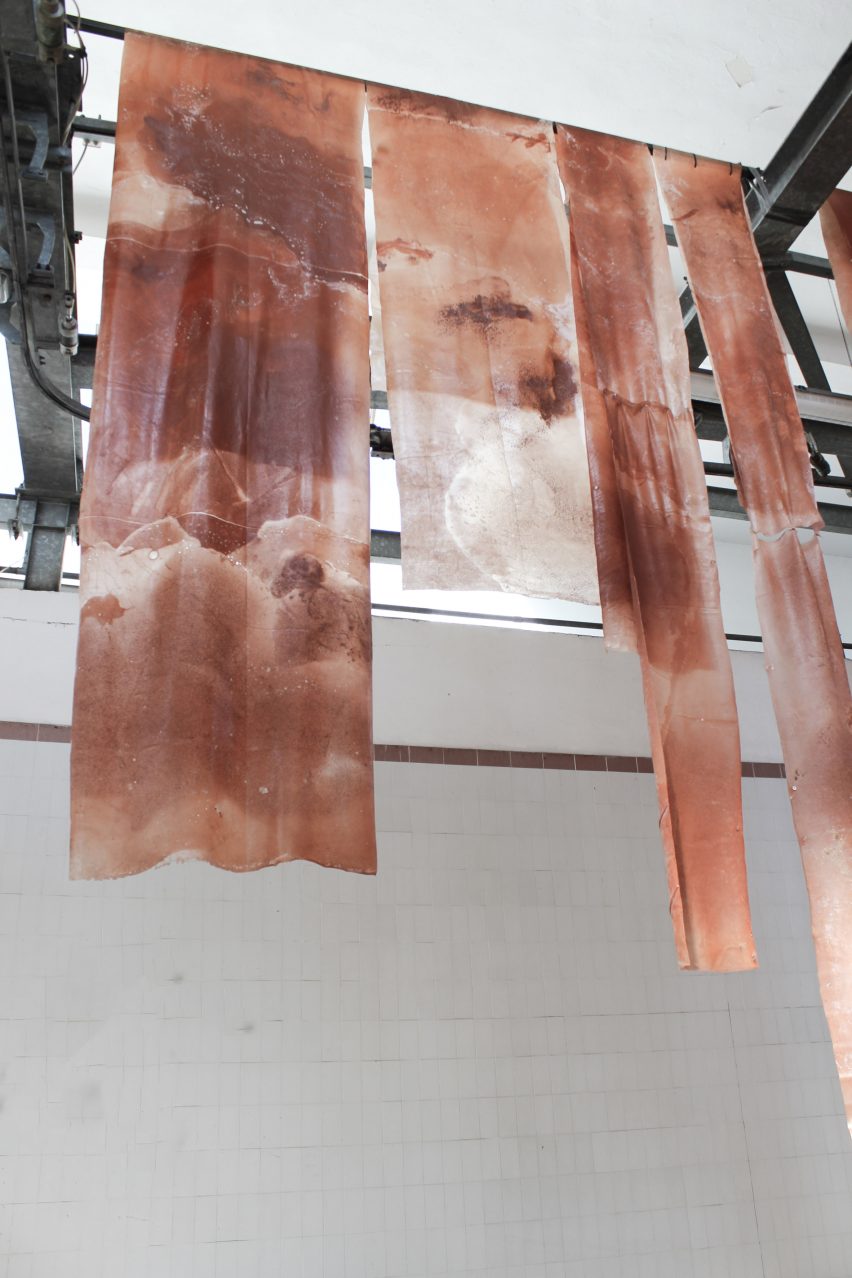
All-natural Material Studio labored with Polish designer and researcher Zuzanna Skurka to produce the textiles from extremely porous repurposed bricks that were being labeled as waste immediately after demolition assignments.
“Rule just one is, you must operate with resources that are presently there,” studio founder Bonnie Hvillum advised Dezeen in Milan.
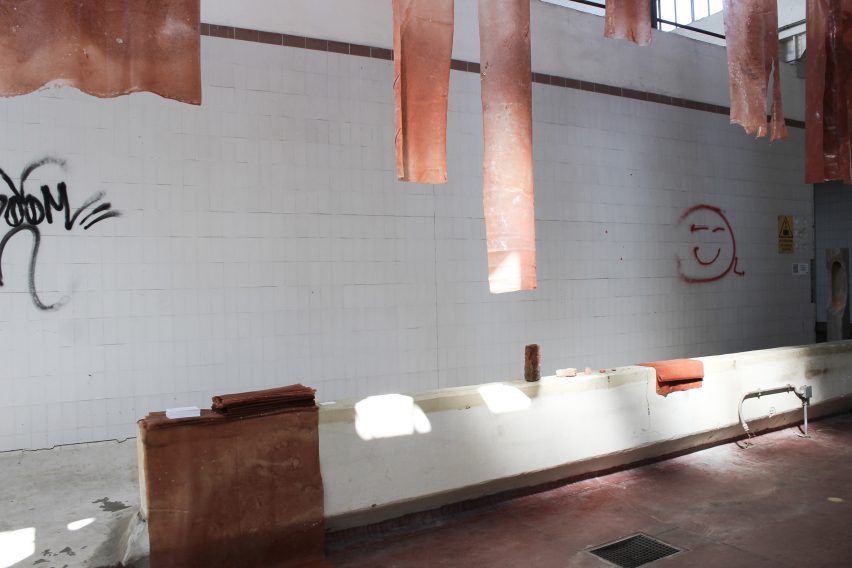
The textiles ended up produced from a mixture of crushed bricks bonded jointly with Procel – a residence-compostable, protein-primarily based bioplastic of purely natural softener and pigments designed by Natural Product Studio.
Featuring a distinctly reddish hue, the textiles ended up divided into substantial, roughly-lower slabs that hold suspended from the roof on steel bars in a home at Alcova to form a remarkable set up illuminated by skylights.
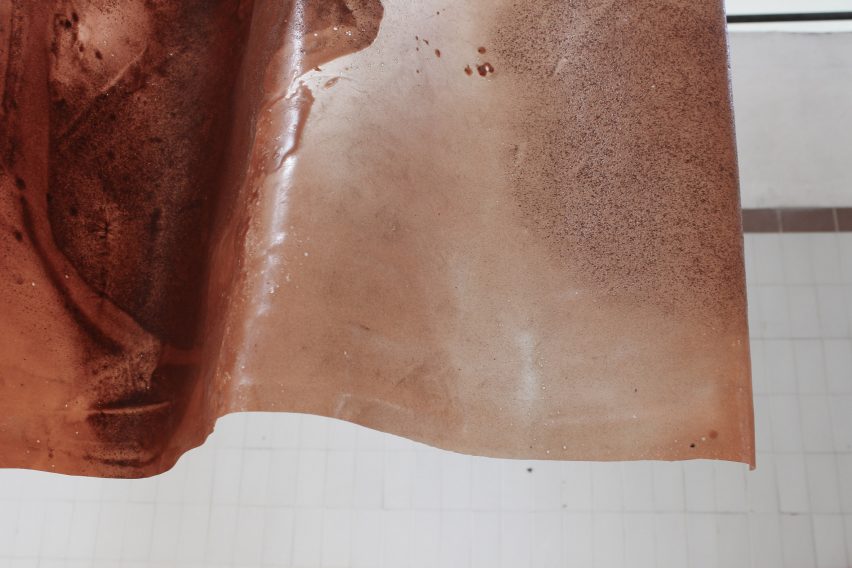
Pure Materials Studio and Skurka drew upon traditional weaving methods to generate the textile, which was created by incorporating bricks and Procel into a “biomaterial matrix”, in accordance to Hvillum.
The product owes its power, colour and texture to the bricks, which create exclusive swirly patterns on just about every slab that are produced randomly during the “fluid casting process”, she described.
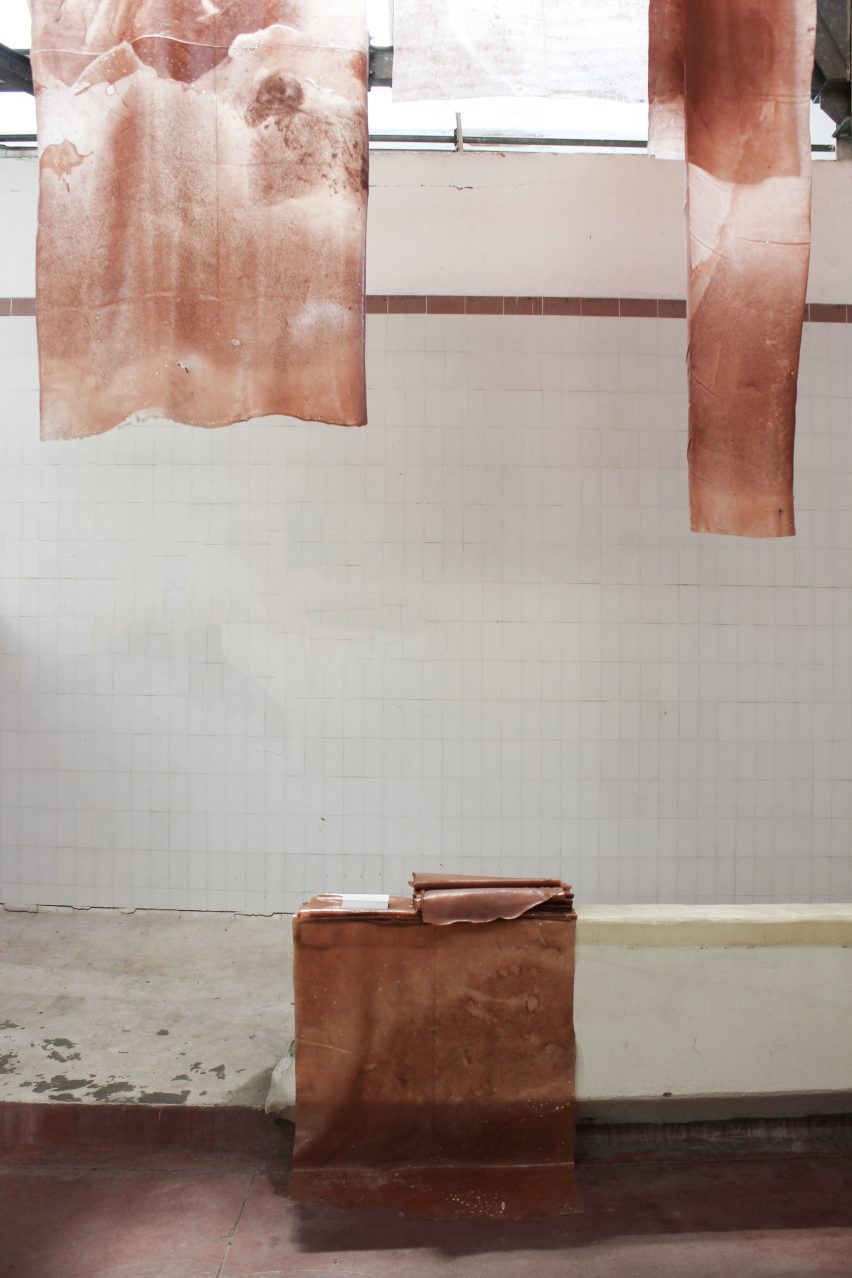
“We had been pretty curious about this question of how can architecture be versatile, more uncomplicated and translucent even? additional Hvillum. “It’s all the reverse elements of a brick.”
“When we think of brick it really is like a strong, rigid, structural wall,” she continued. “But how can we make much more flexible and fluid architecture now?”
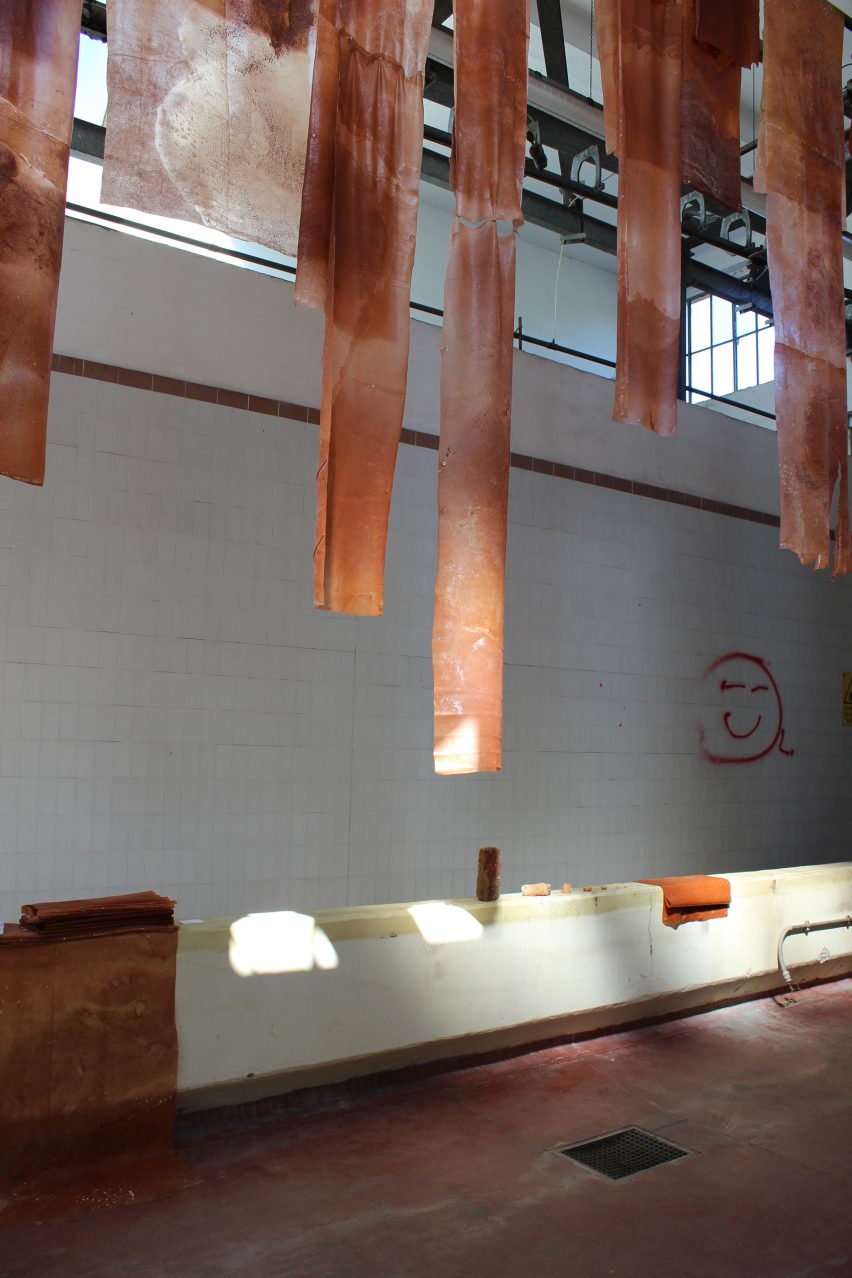
Holes had been pierced into the corners of the slabs so that they can be linked alongside one another.
Whilst the drinking water-resistant textile is by now staying used by inside architects as space dividers, Hvillum claimed that the studio hopes that one particular working day it could kind total partitions.
“The way we create and how we dwell in the designed environment shapes us, so if we can make a additional versatile and natural biomaterial, we want to commence the exploration of what that experience is,” she continued.
This yr, the Alcova exhibition can take place at a previous slaughterhouse in Porta Vittoria. The formation of brick-dependent textiles hangs from metal bars where meat the moment hung at the internet site.
“You will find some thing amusing and a minimal little bit tough about that picture,” acknowledged Hvillum.
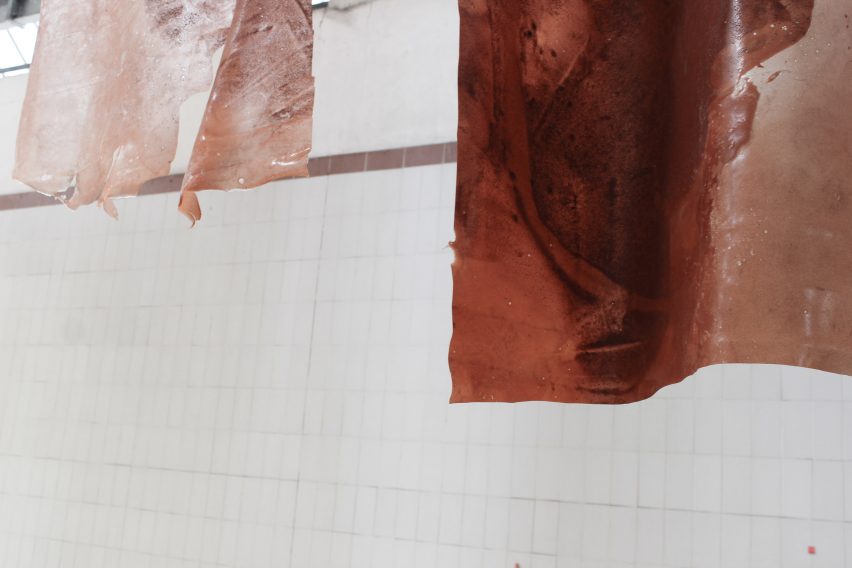
The components specialist described that Brick Textiles intends to salvage a thing from the earlier and suggest fresh new techniques of thinking about an present useful resource.
“It can be new elements we’re producing, so we nonetheless don’t know almost everything about them,” she mirrored. “And that is the natural beauty and honesty of it.”
Established in 2018, Pure Product Studio has designed a variety of repurposed elements for huge-ranging jobs. These incorporate crockery for a seafood cafe designed from leftover scallop shells and clothing made with algae, clay and foam.
Brick Textiles is on display at Alcova from 17 to 23 April 2023 as aspect of Milan design week. See our Milan design and style week 2023 manual on Dezeen Occasions Guide for information and facts about the several other exhibitions, installations and talks getting spot all over the week.
